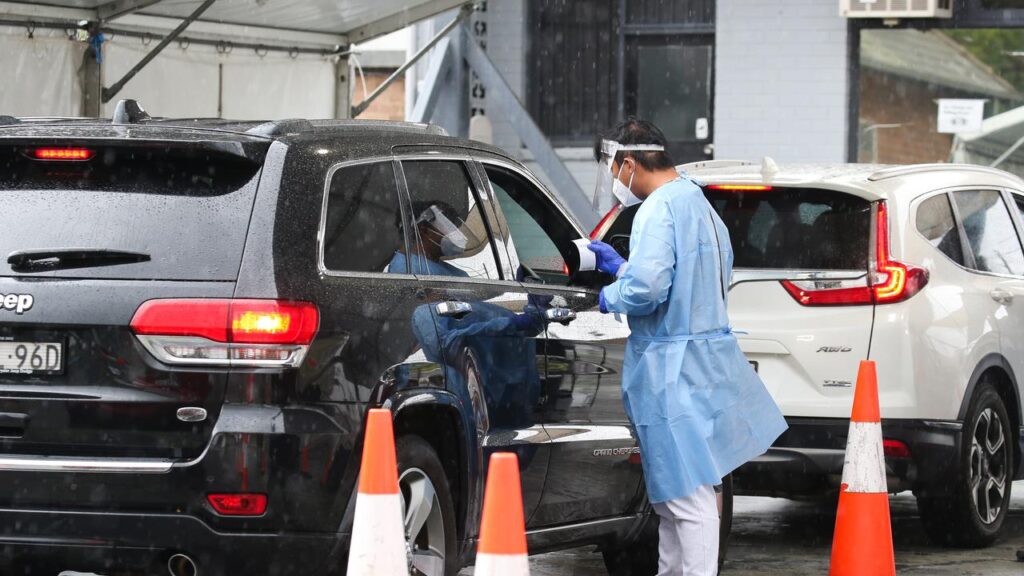Victorian magistrates taught to give light sentences to avoid having criminal migrants deported
Written by admin on October 29, 2024
The Victorian government is probing “disturbing” reports that magistrates were given training on how to give light sentences to criminal migrants to avoid triggering federal deportation laws.
The Herald Sun reported on Monday that the training, which formed part of a professional development session last week, taught magistrates how to avoid imposing sentences that would result in offenders including pedophiles and drug dealers being deported from Australia.
Federal immigration law allows the government to deport non-Australian criminals if they have been in the country for less than 10 years and have received a sentence of more than one year in prison.
One hypothetical example given to Victorian magistrates involved a Vietnamese student who had just arrived in Australia and had sexually assaulted an eight-year-old girl multiple times.
Magistrates were advised to sentence the accused to 11 months and 15 days in prison so that he would not be deported at the end of his sentence, according to the Herald Sun.
They were also reportedly lectured on avoiding jail sentences for drug-trafficking crimes.
Victorian Premier Jacinta Allan said on Monday she had ordered Attorney-General Jaclyn Symes to investigate.
“I have some concerns about the report today, and I’ve spoken to the Attorney-General, and she will be speaking with the courts about this matter,” Ms Allan told a press conference.
“I’ll leave those conversations to be had between the attorney and the courts, acknowledging that the courts run this training. They are an independent arm in this state [and] I’ll not be running a public commentary other than to say this report has raised some concerns, and the attorney will be discussing that with the courts.”
Shadow Attorney-General Michael O’Brien told Sky News the Premier’s response was “not good enough”.
“Premier Jacinta Allan has been writing the laws of this state for 10 years,” he said. “She and her government have written the Sentencing Act that allows these loopholes to be created. It’s about time Premier Allen stopped talking a big game and started acting, and the first thing she should do is close this loophole.”
Speaking to Sky News on Tuesday, former Victorian Supreme Court Justice Kevin Bell said the reported training was “problematic”.
“The impact of a sentence upon the person found guilty is certainly a consideration, just as the impact of the crime upon the victim is a consideration,” he said.
“Sentencing is a principle-bound business in legislation, there are principles that have to be applied and the impact upon a sentenced person is one of those. But what is problematic and I think is behind the decision of the Premier to ask the Attorney-General to inquire into this, is where judges are told that a particular outcome should be achieved in a particular case. That’s problematic because it’s contrary to the fundamental principle of discretionary sentencing.”
But Mr Bell suggested it was “not very likely” that magistrates were dishing out light sentences to help criminals avoid deportation.
“The law requires them to take into account a number of things — the severity of the crime, the justness of the punishment, the impact of the crime upon the victim, and the circumstances of the offender including the impact of the sentence upon the offender,” he said.
“Magistrates are required to consider all considerations and not to give undue weight to one or the other. So if this training creates the appearance that a particular outcome … that is that offenders likely to deportation must be given a light sentence, I think that it’s very unlikely that would be followed. The inquiry which the Premier has initiated into the training will I think reveal just what happened there.”
Federal shadow Immigration Minister Dan Tehan said on Monday the reports were “disturbing”.
“The federal and Victorian Labor governments must explain if they endorse tailoring judicial sentences to allow criminals to avoid deportation,” he told Sky News.
“Australians expect that anyone found guilty of a crime is sentenced based on the evidence before the courts not to circumvent federal immigration laws.”
A court spokeswoman told the Herald Sun that the professional development day “included presentations from a number of speakers on areas of the law relevant to the work of the court”.
“The focus of the day was sentencing,” she said.
“The law treats deportation as a ‘relevant circumstance’ for the purposes of sentencing. Scenarios are commonly used in education sessions to provide an environment in which to illustrate the operation of relevant legislative provisions and to discuss the proper application of principles of law. This is a common approach.”
She added that “every judicial officer is an independent decision-maker in relation to each matter before them and they act on that basis”.
According to the Judicial College of Victoria’s sentencing manual, “the prospect that an offender will be deported following sentence is relevant to sentence if it will make the burden of imprisonment more onerous or may result in the offender losing the opportunity to settle permanently in Australia”.
“This depends on the personal circumstances of the offender and a court should not consider the possibility of deportation as a mitigatory factor unless it will actually be a hardship for the offender,” it says.
“Moreover, it will be given limited weight in cases where the offending is particularly serious.”
The sentencing manual states that it is “error for a sentencing court to artificially lower a sentence in order to avoid the consequences of the Migration Act”.
Victorian courts generally cannot consider the possibility of deportation without specific evidence or a prosecution concession.
More Coverage
“However, where there are unusual circumstances demonstrating a connection to Australia — such as a lengthy period of residency before the commission of the offence, or where the offender’s family have made considerable financial sacrifices to send the offender to Australia — the court should consider these matters,” the manual states.
Some states prohibit potential deportation being considered in sentencing at all.
Federal immigration data shows the number of visas cancelled for criminal offending fell from 937 in 2018-19 to 624 in 2022-23. Cancellations for drug offences fell from 197 to 148 and for child sex offences from 104 to 54 in that time.







